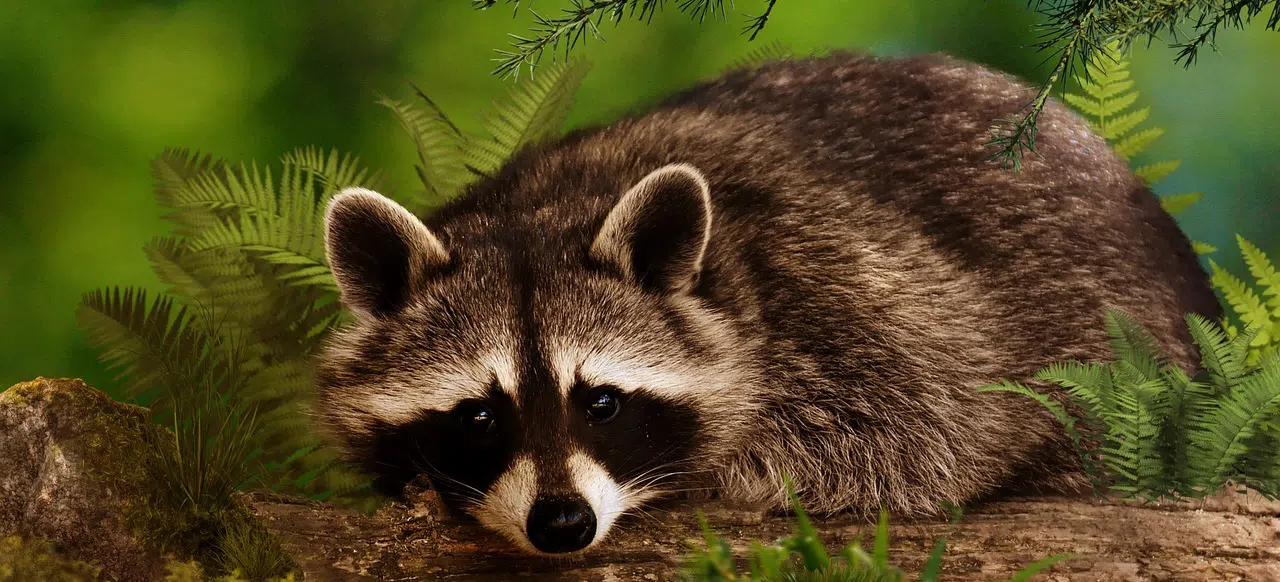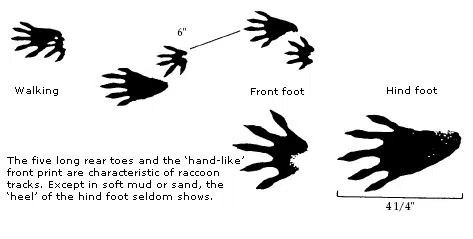Where Do Raccoons Live During the Day?: Understanding Raccoon Behavior
In short: Any place condusive to a good day's rest!
A quiet, dark place to snooze the day away is where you'd likely find a raccoon during the day. This includes anthing from hollow trees to that lovley spot under your deck. With being primarily nocturnal critters, raccoons keep mostly out of sight during daytime hours. However, there are several reasons why you might spot a raccoon during the day: Nursing mums need extra nutrition and need to feed more often, a predator or other perceived threat, or simply the availability of a midday snack.

Natural Habitats of Raccoons
Raccoons are found in almost every province in Canada and also across the United States. Originally found in mostly wooded areas, raccoons are incredibly adaptive and are now thriving in all sorts of environments, including suburbs and cities. They aren't picky eaters and very good at procuring both food and shelter just about anywhere.
Forests
Deciduous and mixed forests with hollow trees, dense undergrowth, close proximity to water, and an abuncance of food sources make for prime Raccoon real estate. Unfortunately, urban development and deforestation keep shrinking this idyllic and perfect natural habitat for raccoons and many other mammals.
Wetlands
All mammals need access to water; it comes as no surprise that raccoons willingly take up residence in wetlands as well. Wetlands not only provide adequate shelter from predators, but are also abundant in fish and other aquatic delicacies.
Rural Areas
Rural areas with farm land (and tasty livestock!) are also quite popular with raccoons. Raccoons will happily devour a chicken and are very fond of eggs. Old barns and abandoned farm equipment fits the bill for a safe spot to lay one's weary head.
Urban and Suburban Environments
Ah yes, the burbs. Cozy porches and quiet garden sheds are a wonderful thing. So are fruit trees and the grubs under your manicured lawn. And, for the metropolitan raccoon, the never ending buffet of city dumpsters is nothing to snuff at, either. Did you know that Toronto is called the 'Raccoon Capital' of the world? The city of Toronto put in place strict bylaws to deal with the ever growing raccoon population.
Signs of Raccoon Activity During the Day
Tracks
 You might see tracks that almost look like hand prints, especially, near your trash bins, down spouts, or around the yard. Front paw tracks are generally oval, measuring about 2 to 3 inches long. The hind tracks are slightly longer, often resembling a human footprint in shape.
You might see tracks that almost look like hand prints, especially, near your trash bins, down spouts, or around the yard. Front paw tracks are generally oval, measuring about 2 to 3 inches long. The hind tracks are slightly longer, often resembling a human footprint in shape.
Droppings
Raccoons are omnivores, which means they'll eat just about anything they can find. This can make identifying raccoon feces a bit of a head scratcher.
Raccoon poop is usually tubular in shape with blunt ends and about 3 inches long. The droppings are typically dark brown to black in color. Depending on what the raccoon ate and how old the poop is, the consistency can vary between sticky and clumpy. It may often contain seeds, nuts, and berries.
Sounds
Raccoon sounds can vary from chittering to snarling or barking. The chittering is the most common form of communication amongst raccoons, both from adults and kits. Growling or hissing occurs when a raccoon feels cornered or threatened. Back away - you do not want to engage a raccoon in this situation. Barking can be heard if a raccoon is in distress, physical pain or feeling stressed. Aggressive behavior includes snarling and hissing... this is often directed at their own kind.
Preventing Raccoon Encounters
While raccoons look cute and are entertaining to watch, you really do not want them on or around your property. Their mad breaking and entering skills make for unwanted guests in your attic or shed and can leave you with hefty repair bills. And, raccoons are the main carriers of rabies and a host of other parasites - something you'll want to keep away from your pets and family. When we look at where raccoons live during the day, we'll want to make our home, yard, and garden as uninviting as possible.
Secure Trash Cans and Food Sources
There's a reason raccoons have earned the nick name 'trash pandas'. Their nimble paws and considerable fortitude and determination can make a mockery of your trash bin. Lids and even locks barely present a challenge. If need be, use bungee cords to secure your trash can lids or store your trash cans indoors. Pet food and water bowls should also be moved inside.
Seal Potential Entry Points
Every spring and fall you should do a walk around your house, your roof, and any out buildings to check for potential weaknesses or entry points. Again, raccoons are determined creatures and can turn a loose shingle into a grand entry in no time at all. Also pay special attention to your deck or porch.
Remove Outdoor Shelter Sites
Anything stored outside that is roomy enough for a raccoon and quiet and/or dark will be seen as an invitation. Also check for hollow tree trunks and remove them, if possible. Let's not give them a place to live during the day, if we can avoid it.
Install Motion-Activates Lights and Alarms
While lights and alarms aren't a fool-proof solution, they can add an air of discomfort to visiting raccoons. Keep in mind though, that raccoons will eventually learn that there's no real danger from these devices and their success is temporary.
Bigger Raccoon Issue? Call in the Professionals!
If you've had to answer the question of where raccoons live during the day, you likely have seen one or more signs of their presence. Dealing with raccoons and their latrines isn't for the faint at heart - and potentially dangerous. Contact Hawkeye Bird & Animal Control and let our experienced, licensed technicians look after your unwanted raccoon guests.














